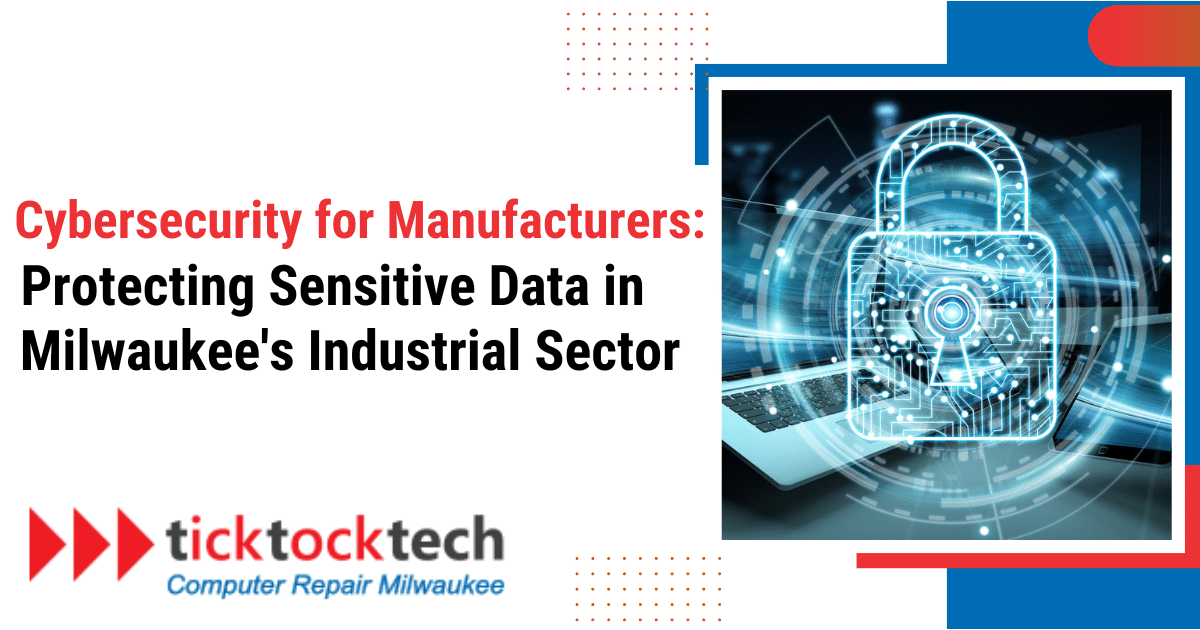As Milwaukee’s industrial sector continues to embrace digitization, the importance of cybersecurity for manufacturers has become increasingly significant. The adoption of Internet of Things (IoT) devices, automation, and data-driven decision-making has spurred this shift, exposing manufacturers to a variety of cyber threats. In this article, we will explore the unique cybersecurity challenges facing Milwaukee’s manufacturers, the consequences of cyber threats, and the best practices for protecting sensitive data.
Understanding the Risks
Manufacturers are prime targets for cyber attacks due to the valuable intellectual property, trade secrets, and proprietary information they possess. They store a wealth of sensitive information, from product designs to customer data, that cybercriminals can exploit. Additionally, the interconnected nature of modern manufacturing facilities, characterized by Industrial Internet of Things (IIoT) devices and cloud-based systems, introduces new vulnerabilities that cyber attackers can exploit.
Related: What is Cybersecurity Risk Management?
Common Cyber Threats
Cyber threats facing manufacturers in Milwaukee include:
- Ransomware is malicious software that encrypts critical data and demands payment for its release.
- Phishing attacks are deceptive emails or messages designed to trick employees into revealing sensitive information or downloading malware.
- Supply chain attacks target third-party vendors or suppliers to gain access to a manufacturer’s network.
- Insider threats are intentional or unintentional actions by employees that compromise cybersecurity, such as sharing credentials or falling victim to social engineering tactics.
- Industrial espionage: This aims at stealing sensitive data to gain a competitive edge.
Related: How To File A Complaint For Cybercrime [New Update]
Consequences of Cyber Threats
The implications of cybersecurity breaches can be severe for manufacturers.
- Financial losses: The halted production lines, ransom payments, and system repair costs can be immense.
- Reputation damage: This can lead to lost trust among customers and partners, potentially harming long-term business prospects.
- Legal repercussions: This may follow if sensitive customer or employee data is compromised, leading to fines and lawsuits.
Best Practices for Cybersecurity
To mitigate these risks and protect sensitive data, manufacturers in Milwaukee should implement robust cybersecurity measures:
- Employee training: Educate employees about cybersecurity best practices, including how to identify phishing attempts and the importance of strong passwords.
- Network segmentation: Divide the network into segments to limit the potential impact of cyber threats and prevent lateral movement by attackers.
- Access control: Implement strict access controls to ensure that only authorized personnel can access sensitive data and systems.
- Regular updates and patches: Keep software and firmware up-to-date to patch known vulnerabilities and minimize the risk of exploitation.
- Data encryption: Encrypt sensitive data both in transit and at rest to prevent unauthorized access, even if the data is compromised.
- Incident response plan: Develop and regularly test an incident response plan to effectively respond to cyberattacks and minimize their impact.
- Risk assessment and management: Begin with a thorough risk assessment to identify potential vulnerabilities within networks, software, and hardware. This assessment should be regularly updated to reflect new cyber threats and changes in the operational environment.
- Collaboration and information sharing: Work with other manufacturers and cybersecurity organizations to gain insights into new threats and best practices. This can improve the sector’s overall cybersecurity posture through shared experiences and strategies.
- Multi-factor Authentication (MFA): Implementing MFA provides an additional layer of security, making it significantly harder for attackers to gain access to systems even if they have one set of credentials.
See Also: Cybercrime and the types of computer access crimes
Conclusion
For Milwaukee’s manufacturers, integrating cybersecurity into their daily operations is not just about protecting data but also about ensuring operational continuity and safeguarding their future. While the task may seem daunting, the strategic application of resources toward cybersecurity measures is a necessary investment in today’s increasingly digital industrial environment. By following these best practices, Milwaukee’s manufacturers can strengthen their defenses against the constantly evolving cyber threat landscape.
FAQs
A: Cybersecurity is crucial for manufacturers in Milwaukee’s industrial sector to protect sensitive data, intellectual property, and customer information from cyber threats such as data breaches, ransomware attacks, and phishing schemes. Additionally, robust cybersecurity measures ensure operational continuity, safeguard reputations, and mitigate legal liabilities.
A: Key strategies for cybersecurity in manufacturing include conducting risk assessments, securing IoT deployments, providing employee training and awareness programs, implementing data encryption and access control measures, developing incident response plans, and partnering with cybersecurity experts for guidance and support.
A: Milwaukee’s manufacturers can stay proactive by participating in local initiatives that offer cybersecurity training and resources tailored to the industrial sector. Collaboration among businesses through programs like the Milwaukee 7 enables the sharing of best practices and strengthens cybersecurity measures across the region.
A: Common cybersecurity risks faced by manufacturers include data breaches, ransomware attacks, phishing schemes, unauthorized access to sensitive information, and vulnerabilities in IoT devices and industrial control systems. These risks can lead to financial losses, damage to reputation, and legal consequences.

